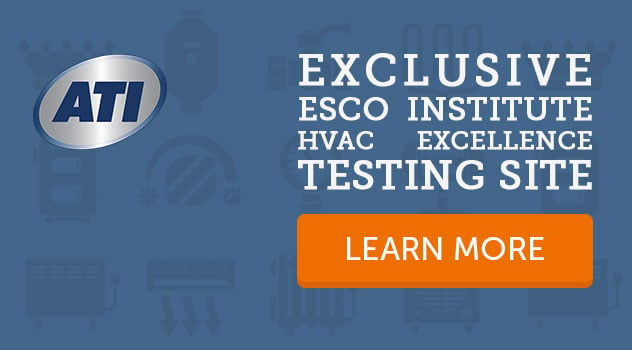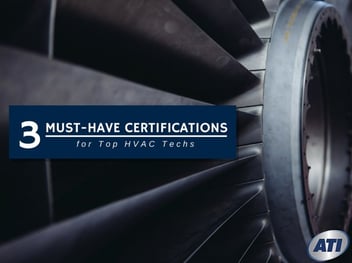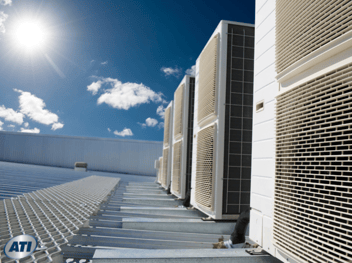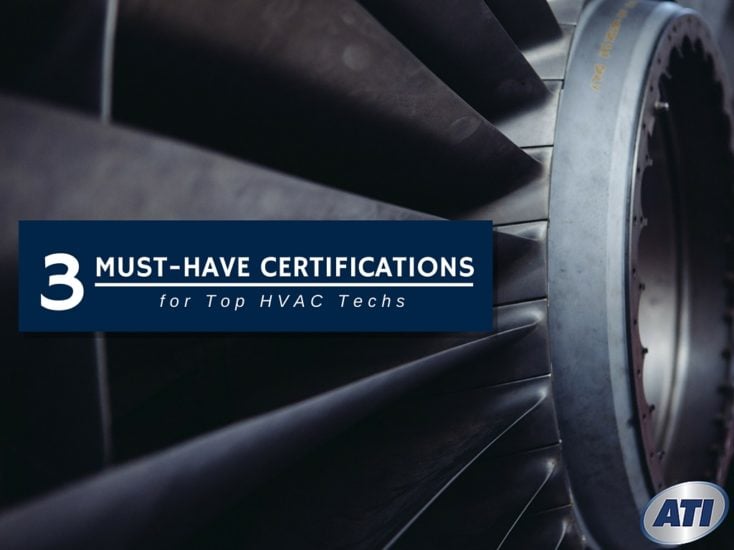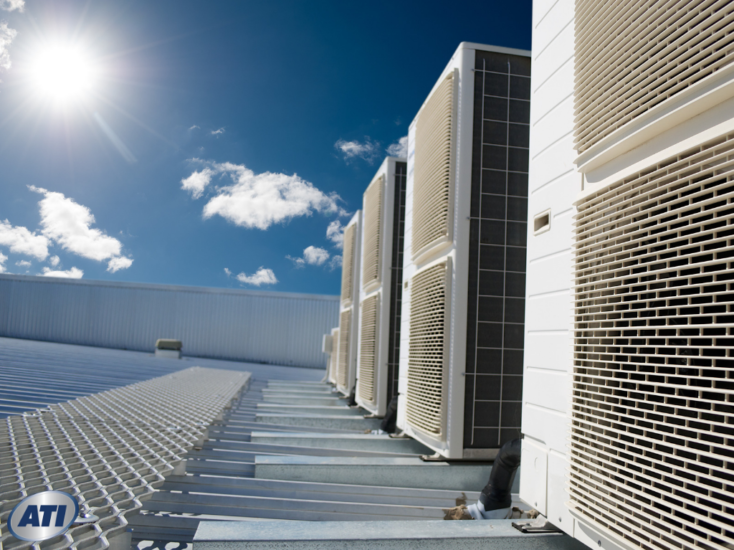4 Ways Green Technologies are Changing HVAC Jobs
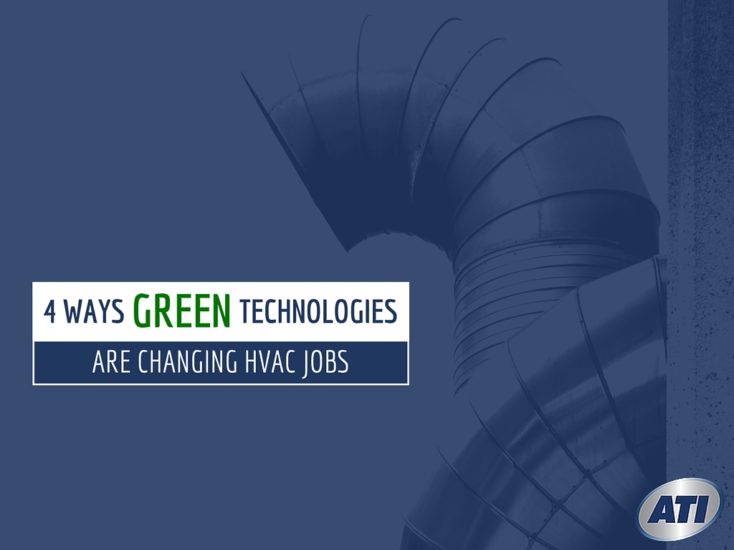
Today’s heating and air conditioning business climate is constantly evolving. From changing building codes, stricter enforcement of Environmental Protection Agency (EPA) regulations, and updated equipment technologies, HVAC technicians and HVAC businesses must evolve along with a rippling business climate. Of course, the movement toward green technologies and green energy is affecting contractors globally, and tighter EPA regulations on HVAC equipment and refrigerants domestically are changing HVAC occupations. Let’s look a little deeper into how the green movement is affecting the HVAC industry by exploring 4 ways green technologies are changing HVAC jobs.
Refrigerant Phase Out and Regulations
In 1991, Honeywell (one of the leaders in HVAC technology) introduced R-410A refrigerant, and since then 410 (as it is affectionately known in the industry) has grown in popularity and become the leading refrigerant in the United States for new HVAC systems. The antagonist of the story, R-22, is being phased out. The EPA has mandated that R-22 refrigerant be gradually phased out, and new production of R-22 will cease all together in 2020.
For HVAC technicians, this means a learning curve and adaptation. Both refrigerants behave differently and neither one is compatible with the other. Technicians must be trained and aware of the differences between both refrigerants and recognize the vital data each will display during a service call in order to properly service and maintain today’s equipment. Also, understanding what alternatives and potential R-22 replacement refrigerants are available will help technicians give their customers and clients more options to keep their systems running as long as possible.
Higher Efficiency Systems: Complexity Ensues
With the advent and widespread adaptation of R-410A, heating and air conditioning systems using 410 can operate at higher pressures and greater efficiency than their R-22 brethren. While this is good news for homeowners–higher efficiency results in lower electric bills for R-410A air conditioners and heat pumps–the systems often come with added protective features, “smarter” control boards, and generally more complex components.
These technological advances aren’t exactly set in stone, and every year, manufacturers are trying to “one up” both themselves and their competitors. Heating and air conditioning is a copycat industry, so having a well-rounded understanding of the widespread technological adaptations taking place industry-wide will help technicians better service newer equipment and better understand how complex components work together.
EPA Regulations Are Changing
The EPA, largely pressured by the growing global demand for more attention to global warming and climate change, has taken significant steps to regulate the HVAC industry into having a far less significant impact on the global weather climate.
The phase out of R-22 refrigerant was quickly followed with an increase in the minimum seasonal energy efficiency ratio (otherwise known as SEER rating) for new equipment. SEER ratings are simply the amount of cooling (measured in BTU’s) divided by the amount of energy (in watts) a system uses. Prior to 2015, the minimum SEER rating for residential air conditioners was required to be 13, but beginning in 2015 the minimum SEER ratings increased to 14. While this doesn’t seem like a drastic change on the surface, the industry is at the mercy of ever-changing EPA regulations on the matter, and understanding the regulations, laws, and consequences of failing to uphold them is a constant challenge for the HVAC industry at large.
Building Codes are Going Green
The inspector: every HVAC installer’s worst nightmare. Unpredictable, not well-understood, and even downright confusing, inspectors serve a very important purpose for both contractors and building owners. Building codes are designed to protect all parties involved, especially buyers, and building codes are shifting towards the green end of the spectrum. While this may not be an issue in smaller communities or cities, large metropolitan areas are seeing an expansive change to eliminate unnecessary materials, use more environmentally-friendly materials, and promote the use of recyclables on job sites.
For the HVAC industry, we can expect to see an alteration over the coming years for more environmentally-friendly insulation, more efficient and flexible ductwork, and an overall movement to improve both environmental and human health. Technicians in the field along with installers should be well-versed on products available at their disposal to satisfy local building codes and be aware of what the industry has to offer in green technologies.
Learn More about HVAC Technologies
Green technology and the green movement have presented myriad challenges to the HVAC industry as a whole and its individual technicians. Learning to adapt to endless change is challenging and problems abound; however, if you’re a problem-solving type and wish to explore in detail how green technology is affecting HVAC jobs, consider getting in touch with an advisor at The Advanced Technology Institute to discover how you can earn an HVAC Technology with Service Management (AOS).
I’m so happy I choose to attend ATI. The instructors are amazing, I’ve learned so much, and I’ve met some of the greatest people here. I want to go back soon for welding.
Posted by Stevanie Lively on Friday, March 11, 2016
DISCLAIMER – Advanced Technology Institute (ATI) makes no claim, warranty or guarantee as to actual employability or earning potential to current, past or future students or graduates of any educational program offered. The Advanced Technology Institute website is published for informational purposes only. Every effort is made to ensure the accuracy of information contained on the AUTO.edu domain; however, no warranty of accuracy is made. No contractual rights, either expressed or implied, are created by its content.
Gainful Employment Information – HVAC Technology with Service Management (AOS)
Gainful Employment Information – Air Conditioning & Heating Technology (Diploma)
For more information about Advanced Technology Institute or any of our programs click here: http://www.auto.edu/ or http://ow.ly/VoydP.
Industry Knowledge
Welcome to the Advanced Technology Institute's Blog, your resource for industry insights and discussions on technologies shaping the future of automotive, heavy vehicle, hvac, welding, and other related career paths.
Explore how ATI's curriculum and hands-on learning opportunities can propel your career in the tech-driven world.
